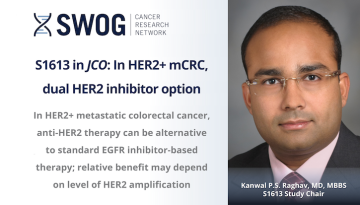First Hybrid Group Meeting a Major Success
Last week’s hybrid SWOG group meeting, held in both Seattle and cyberspace, combined the simple pleasures of face-to-face meetings with the comfort and reach of virtual meetings. I did really enjoy popping my head into a wide variety of committee meetings – something possible but nowhere near as satisfying in a fully virtual environment. Meeting recordings are now online.
Saturday morning’s board of governors meeting is where big decisions are often made, but I want to open with one decision that was not made: we did not vote on the single-candidate election reform proposal I had discussed in this venue shortly before group meeting. Why? Because after I presented an initial version of that proposal on a call with the board at the end of March, I got lots of feedback, almost all of it (maybe even more than “almost”) against the proposal.
Many saw the proposal as undemocratic, and it became clear most on the board thought the change was not right for SWOG. Bowing to the voice of the (overwhelming) majority, I withdrew the proposal. I do hope the lively discussions it sparked can lead to future refinements that will make the nomination and election process even more effective at identifying the ideal person for the group chair position.
What did happen at the board meeting included a decision to move our immunotherapeutics committee from the research support category to the status of full research committee. This committee has been extraordinarily active and is doing outstanding work. They will be opening major studies such as ImmunoMATCH (the S2101 iMATCH pilot study is expected to open by summer), but they will also continue providing expert input to other committees that are running immunotherapeutic components within their own trials.
Other highlights of the board of governors meeting included the welcoming of 458 new investigators to SWOG membership and the approval of a number of new committee leadership appointments:
- Our new lung committee chair, Jhanelle Gray, MD, was formally approved in that role, replacing Karen Kelly, MD. Dr. Gray did a phenomenal job leading her first lung committee group meeting sessions.
- Our myeloma committee got formal approval of two new vice chairs:
- Sikander Ailawadhi, MD, replaced Brian Durie, MD
- Jing Christine Ye, MD, replaced Saad Usmani, MD
- Anjali S. Advani, MD, replaced Steven Coutre, MD, as vice chair of the leukemia committee.
- Roger Lo, MD, replaced Hussein Tawbi, MD, as vice chair of the melanoma committee.
To these new committee leaders, welcome to the SWOG leadership team!
Our spring agenda included several events dedicated to approaches to enhancing diversity, equity, and inclusion (DEI) in the group and within our trial populations, and I was excited to hear the topic addressed in many other sessions as well. The dedicated events included:
- A TAKE ACTION symposium on equity in clinical research that focused on American Indian populations.
- A symposium sponsored by the genitourinary (GU) committee on enhancing DEI in its trials.
- An event held as part of our Friday evening reception that gave members a chance to meet some of those on dedicated DEI teams within SWOG (such as our DEI champions) and a chance to try some DEI cookies (take a look).
As always, our plenary sessions were highlights of the meeting.
- If you’re not quite sure about what the NCI CIMACs (Cancer Immune Monitoring and Analysis Centers) are and do, this is the video for you – a highly informative Plenary I presentation on the topic by Ignacio Wistuba, MD (I recommend catching the great Plenary I videos on translational medicine in triple-negative breast cancer and in GU cancers as well).
- If you want to know what’s going on in myeloma, GU, or NCORP research at SWOG, check out those videos from Plenary II. And of course tune in to my Plenary II opening for news updates and “amusing stories.”
I could go on – mentioning the fabulous symposium on how to incorporate the work of advanced practice providers into your research endeavor and the inspiring SWOG Latin America Initiative symposium, for example – but I have to stop somewhere. The recordings are online.
A survey went out yesterday to those of you who had registered for this spring’s meeting asking about your experience of our first hybrid event. Please take a couple of minutes to respond, letting us know what worked well and how we might improve the experience.
I anticipate other hybrid-type meetings in our future, and I want to extend a thank you to all who worked hard to make this first hybrid meeting a reality and a success.
Other Recent Stories



